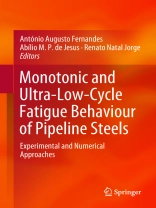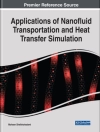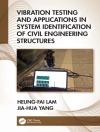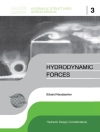This book covers the development of innovative computational methodologies for the simulation of steel material fracture under both monotonic and ultra-low-cycle fatigue. The main aspects are summarised as follows: i) Database of small and full-scale testing data covering the X52, X60, X65, X70 and X80 piping steel grades. Monotonic and ULCF tests of pipe components were performed (buckled and dented pipes, elbows and straight pipes). ii) New constitutive models for both monotonic and ULCF loading are proposed. Besides the Barcelona model, alternative approaches are presented such as the combined Bai-Wierzbicki-Ohata-Toyoda model. iii) Developed constitutive models are calibrated and validated using experimentally derived testing data. Guidelines for damage simulation are included. The book could be seen as a comprehensive repository of experimental results and numerical modeling on advanced methods dealing with Ultra Low Cycle Fatigue of Pipelines when subjected to high strain loading conditions.
Tabella dei contenuti
Chapter 1. Introduction.- Chapter 2. Small-Scale Monotonic Test Data of Smooth and Notched Specimens.- Chapter 3. Small-Scale Cyclic Test Data of Smooth and Notched Geometries.- Chapter 4. Large-Scale Monotonic Tests of Piping Components.- Chapter 5. Large-Scale Cyclic Tests of Piping Components.- Chapter 6. Constitutive Modelling for Plastic Monotonic and Cyclic Damage Behaviour.- Chapter 7. Simulation of Monotonic Full-Scale Tests.- Chapter 8. Simulation of Cyclic Full-Scale Tests.- Chapter 9. Assessment guidelines.












